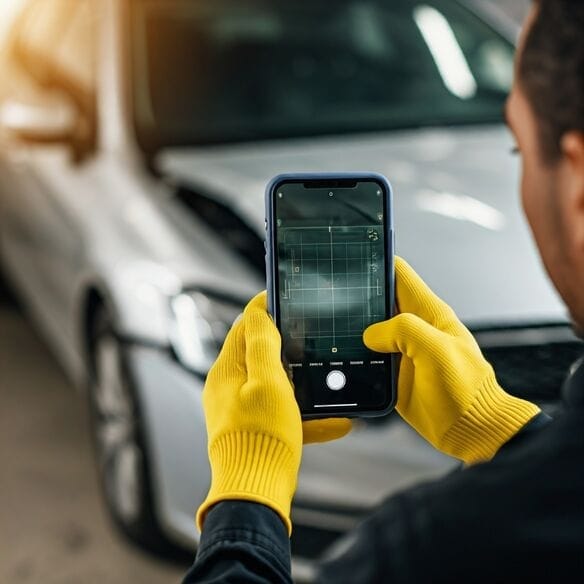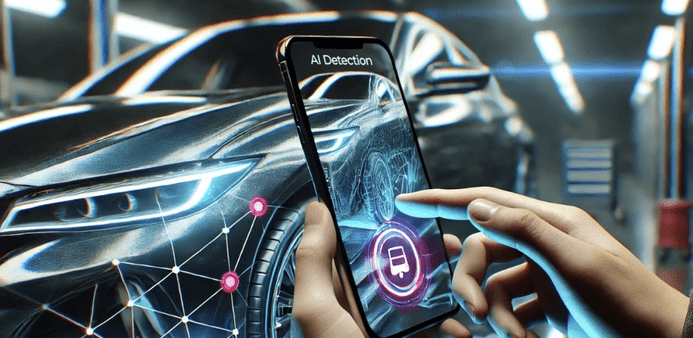How Long Does a Car Inspection Take? | Inspektlabs
While traditional inspections can take days or weeks, digital vehicle inspections exponentially reduce the time required to just a few minutes. This factor promotes efficiency and ensures that the vehicles can get back on the road safely without delay.

This post will discuss how long it takes to conduct a car inspection. We will begin by discussing the importance of car inspections and then cover the process these inspections entail. Then, we will answer the question about how long car inspections take and analyze the factors that impact the time taken. Lastly, we will discuss how we can reduce the time required for car inspections through digitization and automation before concluding.
Introduction
Car inspections are integral to maintaining a vehicle's health and longevity. There are many reasons for having your car inspected, but the biggest question you may have is how long it takes. The duration of the car inspection will vary, depending on the model of your car, the inspector, the requisite paperwork, and other factors. Let us now explore how long a car inspection takes and the factors that impact it. Before we begin, let us briefly discuss why car inspections are crucial.
The Importance of Getting a Car Inspection
Getting a car inspection is an essential step in maintaining a safe vehicle. It includes a series of checks on every part of your car. The examination covers all systems, such as brakes, headlights, and fluid systems. A technician will also check to see if your vehicle has been in an accident. The main reason for having your car inspected is to keep you and your passengers safe. Performing regular inspections will also help you avoid expensive repairs down the road. Having an inspection done before purchasing a vehicle can also save you money by preventing major issues before they become a problem. Driving could be unsafe if your car fails to pass a safety inspection. It could have worn-out ball joints or brakes. It also may have cracked windshields that impair the driver's vision. Similar issues can crop up during a vehicle inspection, making them indispensable to ensure safety. Now that we are familiar with the need and relevance of these inspections let us briefly go over the process.
The Process of Getting a Car Inspection
You will go through a set of procedures whenever you get your car inspected. Before the process starts, you will need to schedule an appointment for the car inspection, either at a body shop or at a location of your convenience. Then, your vehicle will be identified, and the related details will be verified. You will be required to show proof of insurance and to provide identification, such as your driver's license or state ID. You may also need to produce some other government identification or documentation related to your vehicle. After that, the body shop will assign a human inspector/adjustor to assess your car, and you will need to coordinate a suitable time with them for the inspection appointment. Then, they will make a note of the odometer reading, and they will check if the engine is in working condition. After this, the vehicle will undergo a thorough physical examination that will conduct damage detection. The inspection will check for external and internal damages to ensure they can generate comprehensive vehicle condition reports.
Time Required for A Typical Car Inspection
The time it takes to get a car inspection depends on the inspector's knowledge, the number of workers in the inspection facility, the vehicle under examination, and other factors. However, the inspection process should not take more than a couple of hours. While you may only need to spend a few hours at the shop, many other factors determine how long the process will take. For example, if the body shop is quite far from your location, you must account for the travel time both ways. Let us take a close look at some of these factors.
- Appointments and Scheduling - One of the most cumbersome elements of getting a car inspection is the time and energy it takes to set up inspection appointments. This issue arises because body shops that conduct inspections have limited resources and need to consider the owner's schedule. A significant pain point of the traditional inspection process is that it can often take days or weeks to set up an inspection appointment.
- Location of the Vehicle and the Inspection Site – If the vehicle that needs to undergo inspection is located in a remote area, it can add significantly to the time required for the inspection process. There are two ways through which a car can undergo inspection. First, the car owner can bring the vehicles into a body shop where the assessment will be conducted. Second, a human inspector will travel to the site of the vehicle with their equipment to inspect the car. In both cases, if the car is situated in a remote area, the total time required for the inspection will be higher. In some extreme cases, the human inspector may even need to fly down from one location to another to inspect the vehicle. Therefore, this factor can significantly impact how long the entire inspection process will take.
- Workflow of the body shop - Not all retail inspections are of the same caliber and quality. These inspections also differ in the methodology that is applicable for conducting these inspections. While all car inspections check for the same factor, their approach can vary significantly. Apart from the physical inspection itself, the administrative efficiency of the body shop also matters. Even if your inspection is completed within a couple of hours, processing it may take anywhere between a few days to a few weeks. This bottleneck exists because body shops have limited human staff to process the results of these inspections.
- The Personnel - The human inspector that will conduct the car inspection for your vehicle will play a significant role in determining how long it will take. If it is a seasoned professional, you may not have to spend too much time with them because they are generally efficient. However, if an inspector is unavailable due to pending assignments, you may need to wait for them to become available.
How Can We Reduce the Time Required for Car Inspections?
As we have discussed, many factors contribute to the time required for car inspections under the traditional approach. However, car inspections are no longer so complicated with new-age technologies and advancements in the automotive sector. Let us now consider the two approaches that help reduce the time required for car inspections.
- Digitization - Digitization has undoubtedly reduced the time required for car inspections by streamlining and standardizing the ancillary processes associated with car inspections. Everything can now be done digitally, from scheduling to report generation, which helps maintain better records and expedites the process considerably. Instead of using physical forms and files, car inspectors can now maintain digital records, which enables higher accuracy, and drastically reduces the time required for processing the data. Digitization also helps streamline the process of scheduling appointments because car owners can conveniently schedule appointments online based on staff availability.

- Automation - One of the most significant changes in the industry has been the introduction of AI-based assessment. An automated vehicle inspection can tackle the redundancies associated with the traditional inspection framework, reducing the time required for vehicle inspections. Car owners can now inspect their vehicles without taking them to a specific location or worrying about scheduling an appointment with a human inspector.
An AI inspection leverages computer vision and telematics technology to inspect the car remotely. For example, Inspektlabs offers a vehicle inspection app that provides guided capture of the vehicle. Car owners can record their vehicles through the help of this app and conduct a digital vehicle inspection. Then, Inspektlabs' API generates a comprehensive report detailing the damages to the car, and it further suggests whether these damages necessitate repair or replacement. The entire process can be concluded within a few minutes, from capturing the car to receiving a comprehensive report.
Conclusion
The time car inspections take will depend upon the many factors highlighted above. While traditional inspections can take days or weeks, digital vehicle inspections exponentially reduce the time required to just a few minutes. This factor promotes efficiency and ensures that the vehicles can get back on the road safely without delay. Many car inspection businesses are already adopting automation and digitization worldwide, and the technology will keep improving.



